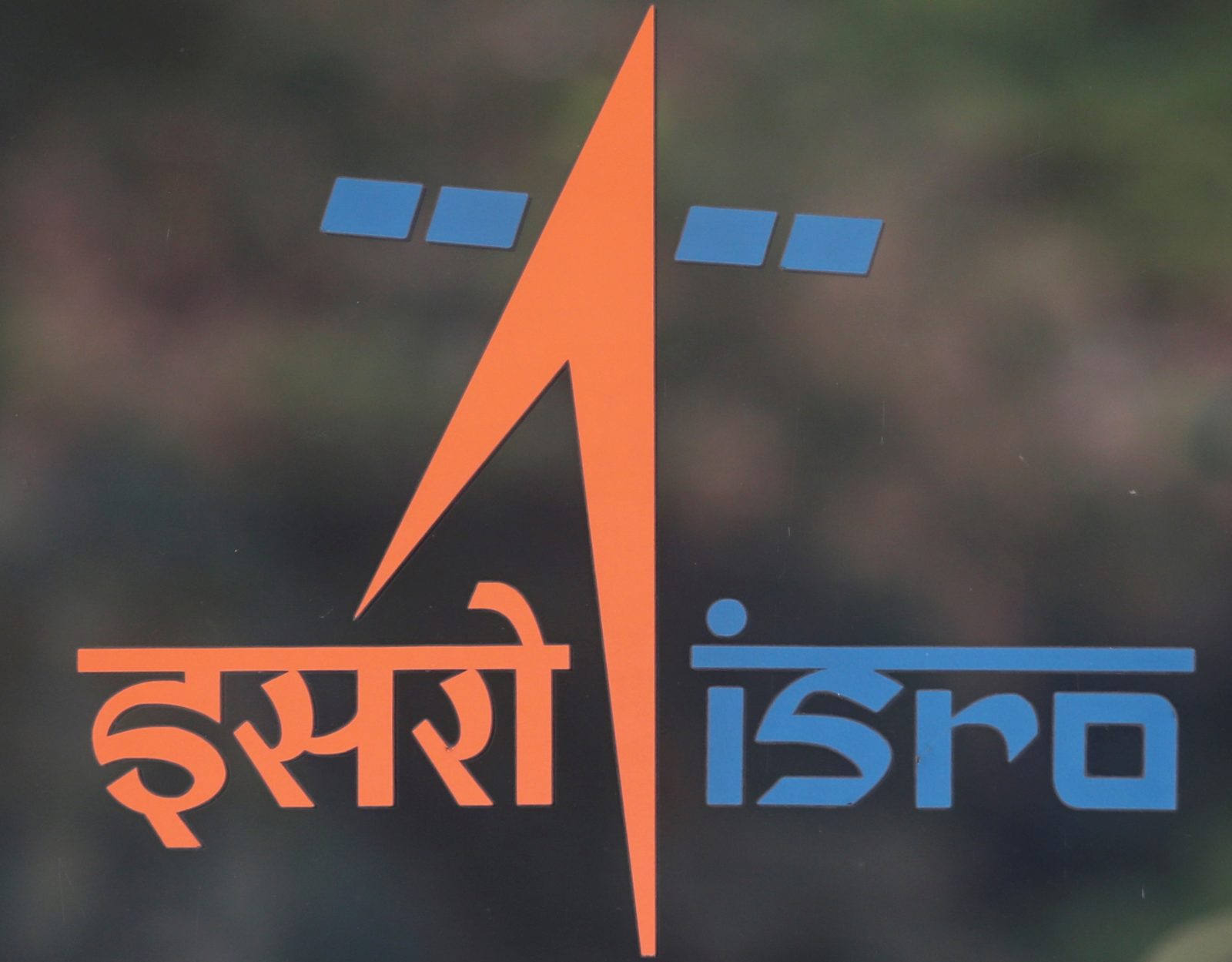
The ISRO logo at its headquarters in Bengaluru, June 2019. Photo: Reuters/Francis Mascarenhas.
New Delhi: The Indian Space Research Organisation (ISRO) is expecting to launch its new Small Satellite Launch Vehicle (SSLV) on its first test flight before December this year, according to reports.
The Wire Science has reported earlier that the SSLV will primarily help ISRO launch lighter satellites more frequently.
Firstpost reported that to ISRO, the SSLV is a “convenient small satellite launcher that can be put together in a week.” It will be a “34-metre three-stage rocket powered entirely by solid fuel,” and have a liftoff mass of 120 tonnes.
A senior official of the Indian space agency has told the news agency IANS that the trials to test the SSLV’s biggest booster motor will be carried out in November.
Also read: Need for Speed: Why Rapid Space Launch Capability Is Important for India
Firstpost also reported that the SSLV will be able to “carry a 500-kg payload to low-Earth orbit and 300 kg to the sun-synchronous orbit.”
Vikram Sarabhai Space Centre director S. Somanath told IANS that the launch will be from the same Sriharikota space-port, from which the organisation currently launches its Polar and Geosynchronous Satellite Launch Vehicles (PSLV and GSLV).
Indeed, ISRO also expects to launch the PSLV C49 mission later this year. When it lifts off, it will be India’s first rocket launch this year, after being set back by the COVID-19 pandemic and subsequent nationwide lockdown.
This said ISRO is also currently building another spaceport in Kulasekarapattinam, Tamil Nadu, to launch the SSLV, as The Wire Science had reported last year.
Should it be fit for launch by December, the Rs-120-crore rocket will have taken two and a half years to make.
ISRO reportedly cut down on production costs by reducing the machining time. According to Somanath, the per kilogram cost of launching a satellite with the SSLV will be similar to that of the PSLV.
“The major development for SSLV is its brand new electronic systems, with local components,” Somanath is quoted by IANS as having said.
The SSLV’s first two payloads had been booked as early as August 2019, according to a report in The Hindu. ISRO chairman K. Sivan had said the SSLV’s maiden flight would place a “single Indian defence Earth-observation spacecraft of 500-kg class in a low-Earth orbit.”
US-based launch service organiser Spaceflight Inc. is another customer who has already lined up to use the SSLV.

